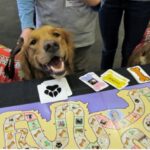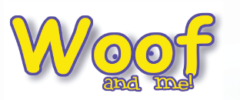One of the best dog-pet board games for 5-9-year-old children!

It was a hot summer day in Phoenix, Arizona when my car rolled to a stop at an intersection. The pedestrian signal light had finally flashed to “walk” for the man standing on the sizzling hot sidewalk. He proceeded to cross the street with his dog by his side. But before the signal had changed, the dog waited stressfully beside its human, lifting its feet off the heated pavement. I realized then that this man had no idea that he was subjecting his dog to a hot sidewalk. Heated asphalt and other surfaces could hurt, or even burn, the paws of his four-legged companion.
There had to be a way to teach young children pet care, responsibility and the problems pets encountered in a fun way, I thought. And THAT was the day that the Woof and Me board game was created.
Why play board games?
Board games are a good way for families to carve out some quality time together and they’re scientifically proven to help kids build skills in everything from empathy to financial planning. Board games are an amazing tool for shy children and timid adults. Playing helps them to develop stronger senses of creativity and individuality which leads to greater self-esteem and a feeling of being noticed and involved.
About the very unique game, Woof and Me!
Woof and Me game about dogs can enable kids to learn all about responsible pet care and simple money skills, while playing a game that focuses on how to properly care for a pet.
Pictures are important.
Pictures in the Woof and Me game are important because a child’s brain is busy making connections. The “bones” that the players collect along the path show real life images of dogs receiving essentials like water, food, shelter, health care, etc. As kids talk about the images in the game, they’re practicing important communication skills. They’re learning to ask questions, to share memories, and to share what’s on their mind. Communication is essential for life!
Boost mathematic skills.
At the start of the game, each player is given a fixed amount of doggy dollars which are used to pay for items their dog needs. Players can also earn doggy dollars. Simple money exchange helps to build math and money skills while having fun!
In addition, by rolling the dice and counting out loud, young children can practice math skills such as number recognition, adding, matching and subitizing (looking at the dots and knowing right away what number they represent instead of counting each dot). Players then move around the board according to the throw of a pair of dice.
Problem solving skills.
Problems are a part of life. But when our furry friends need help, it is our responsibility, as their owners, to take care of them. Woof and Me’s problem-solution cards show problems dogs might encounter and provides solutions to those problems.
Why are problem solving skills important in child development? Children can learn to make healthy decisions for themselves. This important life skill is needed to help them solve their own problems which eventually builds their self- confidence, self-composure and self-esteem.
Board games promote family time.
Board games can also help children develop social skills like communicating verbally, taking turns, sharing and participating in conversations. In addition to teaching kids about teamwork, patience, and how to win and lose gracefully, board games like Woof and Me can actually benefit kids’ brains and language development. And don’t underestimate the benefits of engaging in friendly competition, talking to each other and just downright having fun together!
In conclusion, a dog can make a home feel warm and comfortable. Kids can learn how to make their pet feel like a treasured member of their household. All ages can play Woof and Me that teaches kids how to take care of the family pet!
As the HSUS teaches, “Through helping to care for a pet, children also learn to care for their fellow human beings. There is an established link between how people treat animals and how they treat each other. Kindness to animals is a lesson that benefits people, too.”
